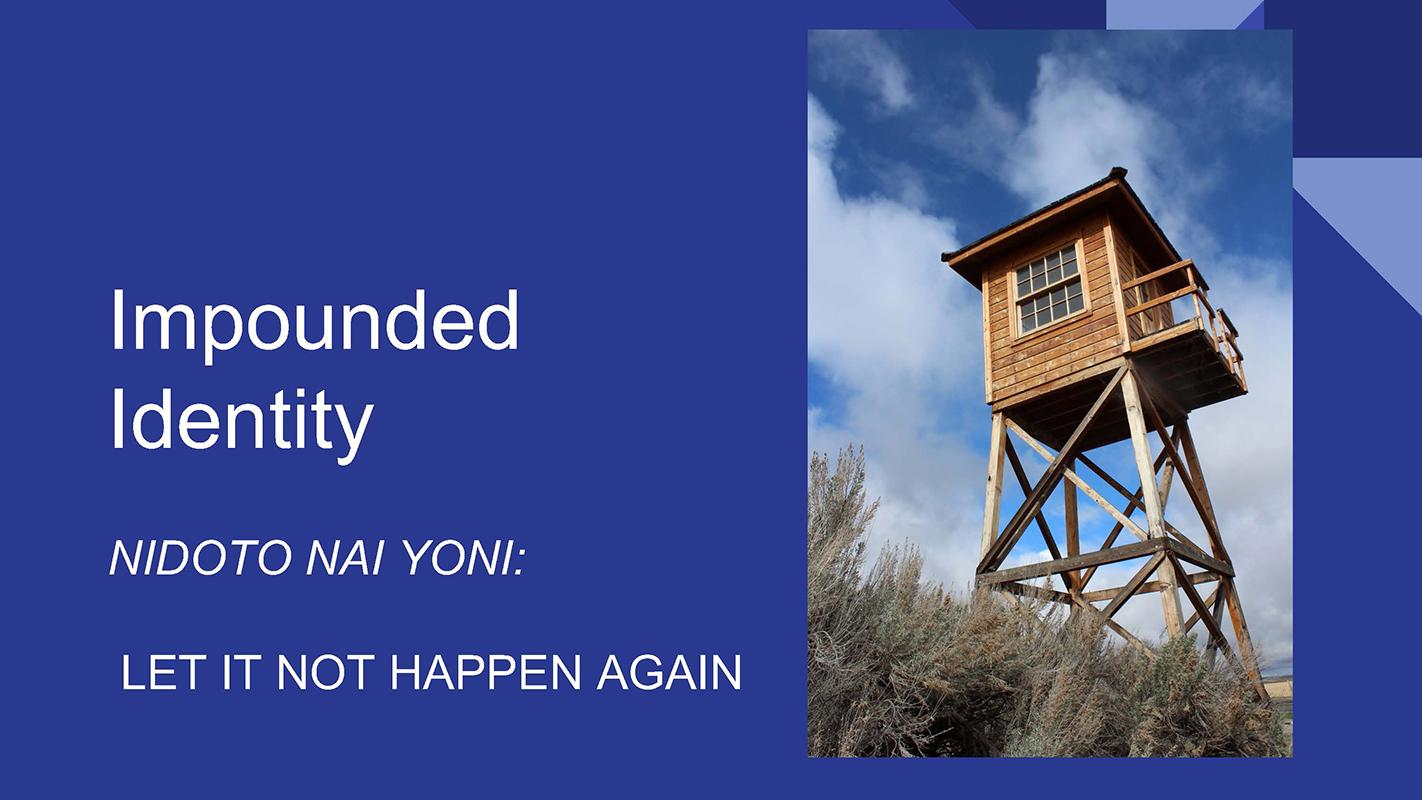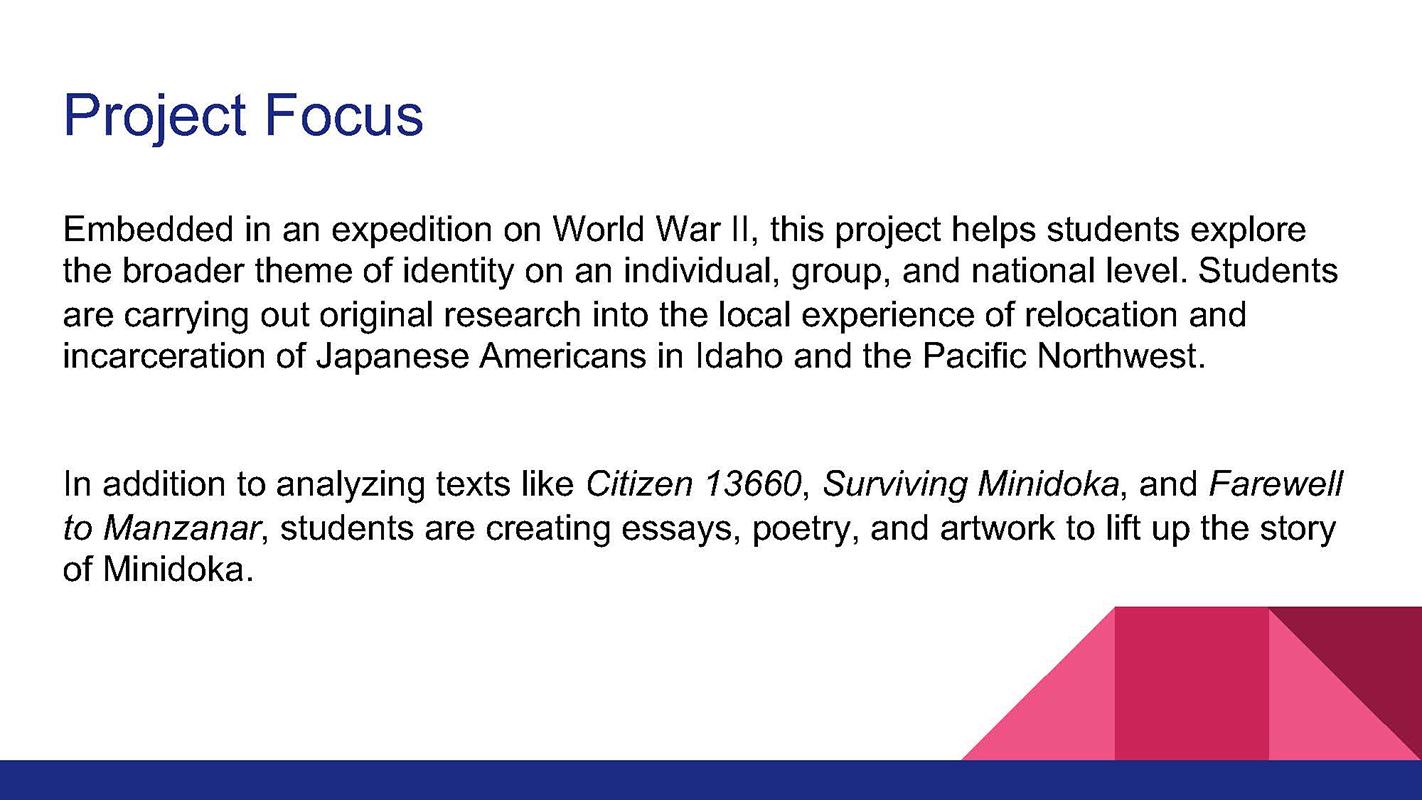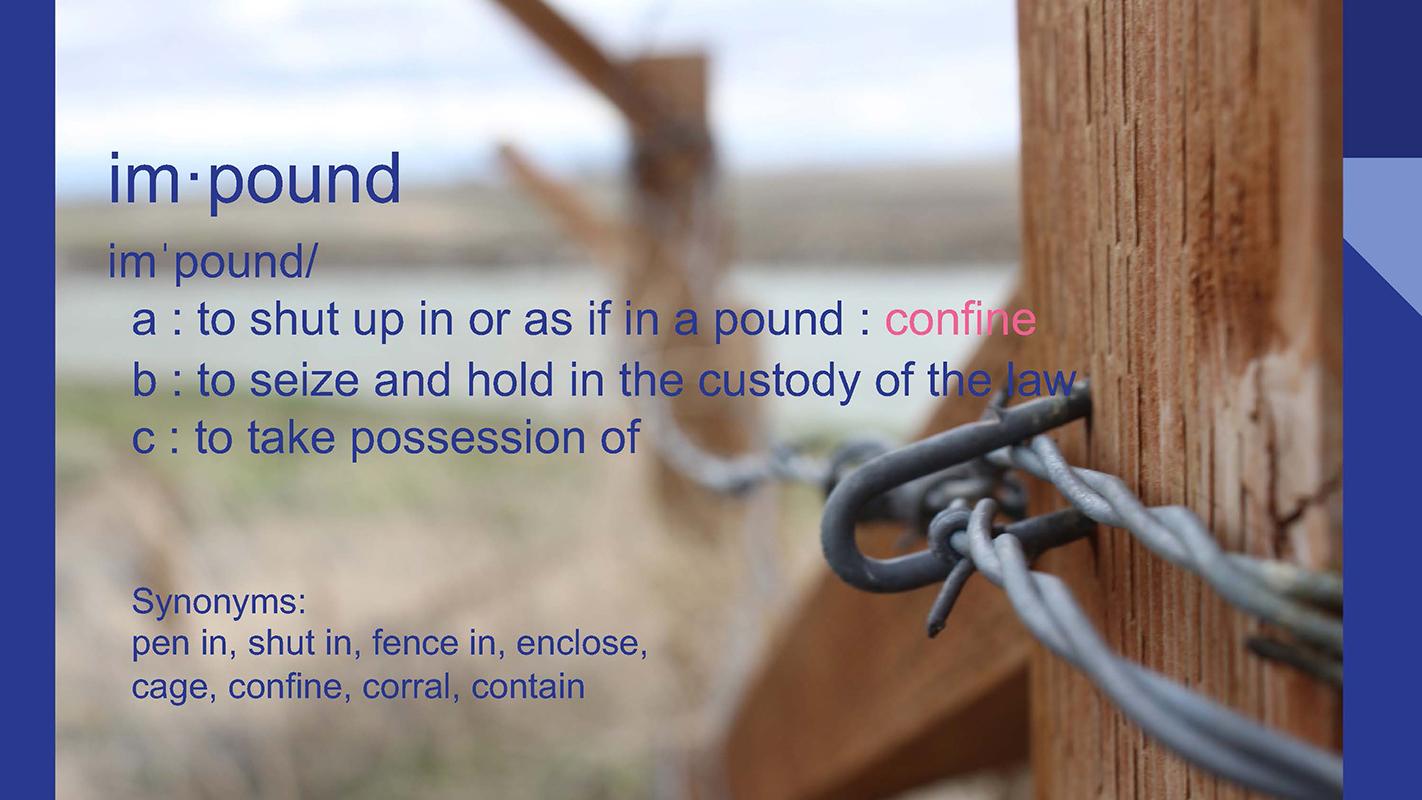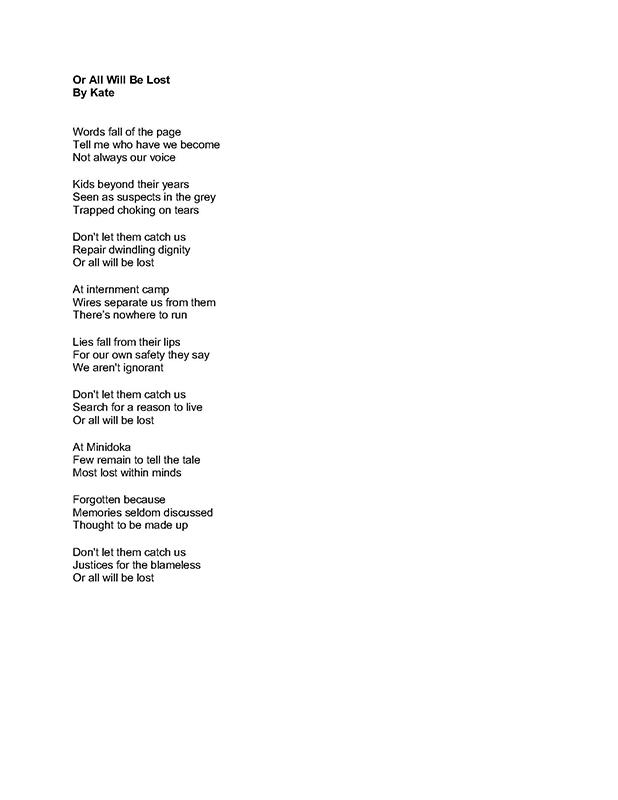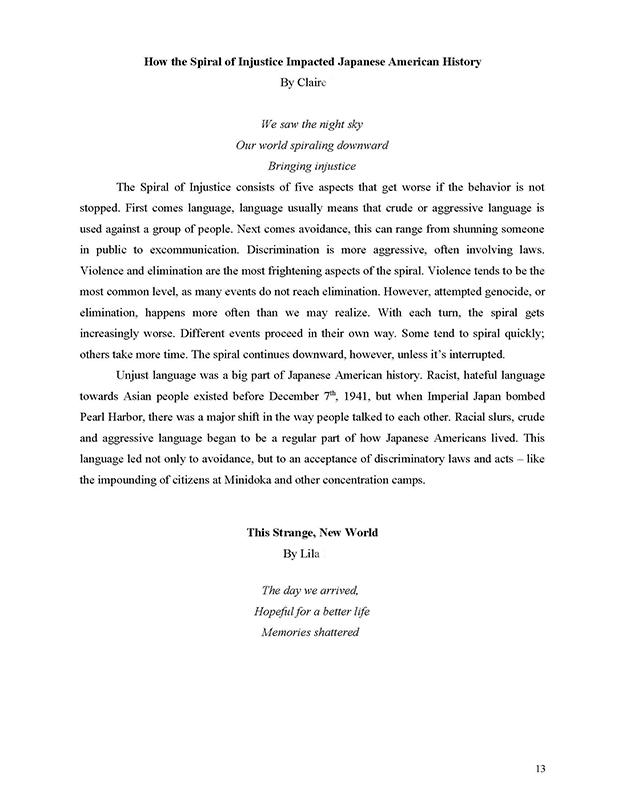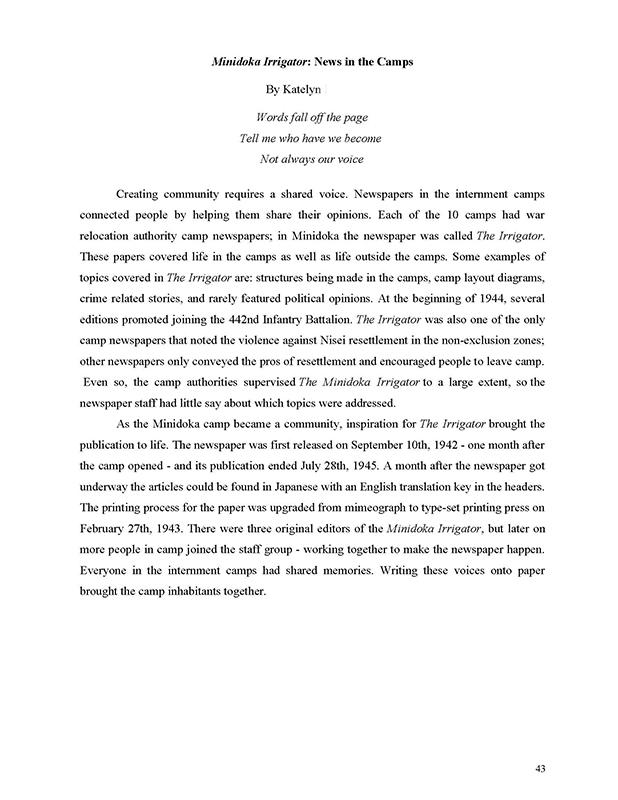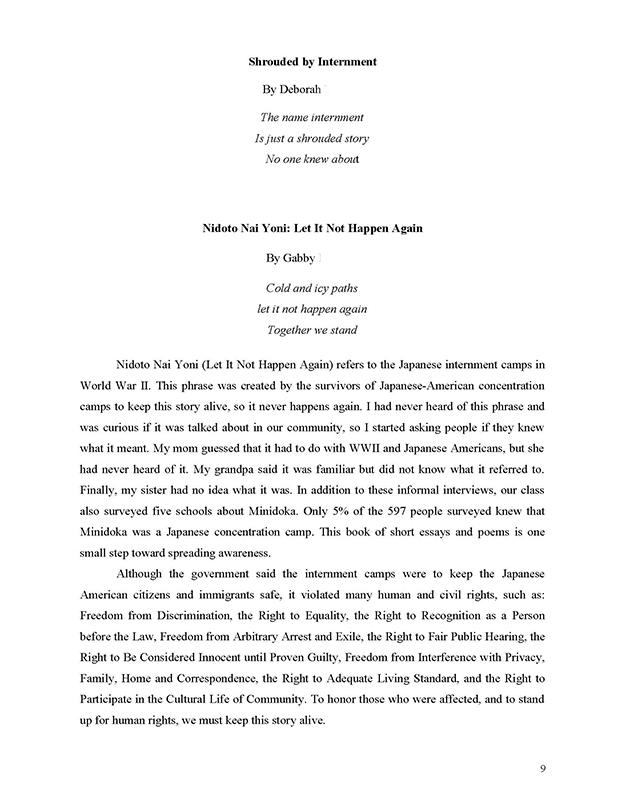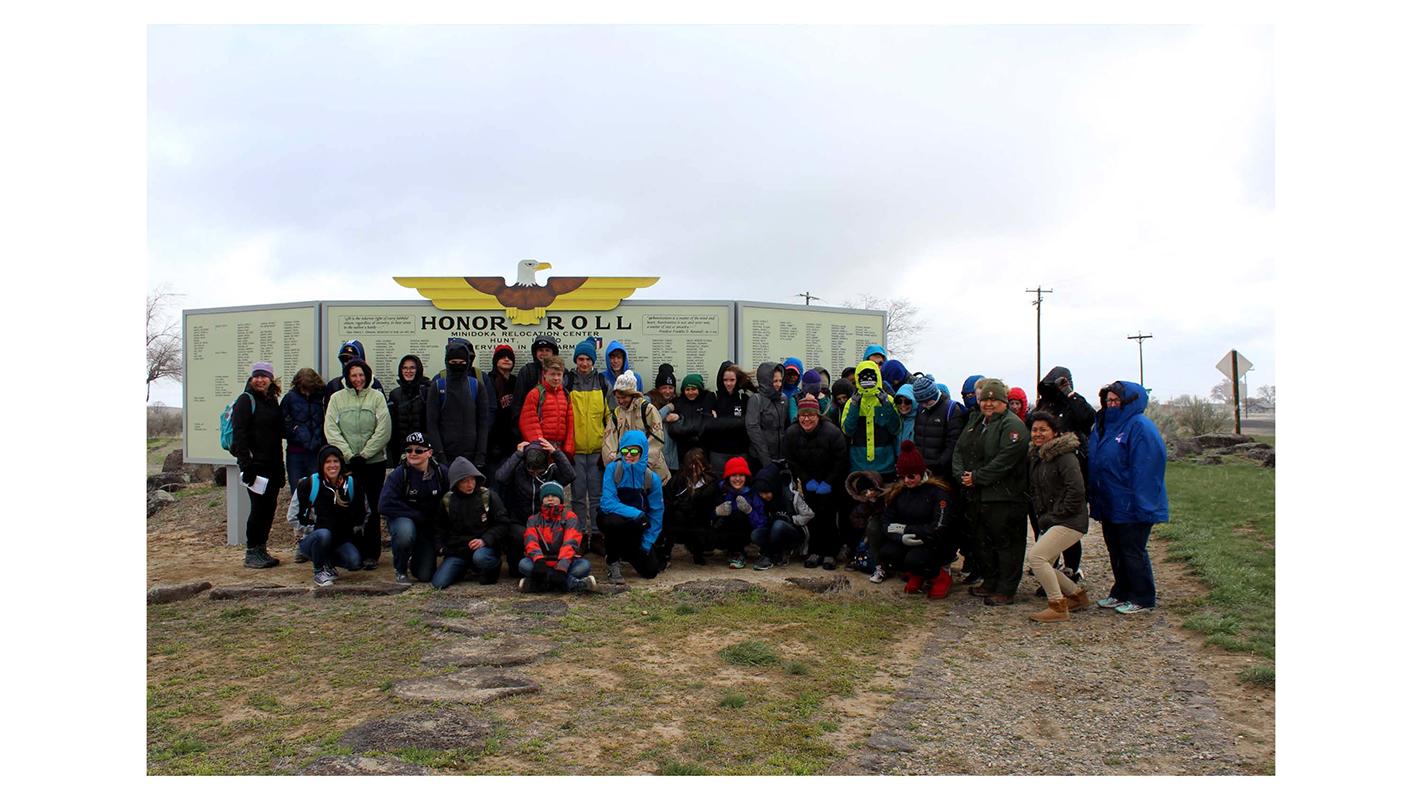Impounded Identity: Reflections on an American Concentration Camp
School: ANSER Charter School
City/State: Garden City, ID
Grade(s): 7, 8
Format(s): Book
Subject(s): English Language Arts, Social Studies
Project Overview
- What impacts identity?
- Why remember?
- What empowers us to resist injustice?
Over the spring semester of 2018, students carried out original research into local awareness of the incarceration of Japanese Americans in Idaho. Inquiry and fieldwork led them to craft Impounded Identity – Reflections on Minidoka, a compilation of essays and poetry focused on the causes, experiences, and impact of this injustice.
After examining mystery texts related to internment at Minidoka (photos, copies of Executive Order 9066, proposals for protecting the camp site, articles from the camp newspaper), students began building schema through varied activities and readings. Surprised that they, as a crew, were unaware of this local event and landmark, students conducted a survey of five additional Boise middle and high schools: Of almost 600 students surveyed, only 5% of the Idaho students knew about the Minidoka concentration camp. This survey sparked many questions!
Spurred on by the results of the survey, students researched historical archives, examining both primary and secondary sources, before writing on a wide range of topics related to the incarceration. Simulating the journey described in Mine Okubo’s classic graphic memoir Citizen 13660, students developed deeper empathy for those affected. Traveling to the Minidoka National Historic Site, students experienced the echoes of history for themselves. At the site, students shared their research data with park rangers and learned first-hand from the spaces and stories of incarceration.
Almost 100 copies of the book were gifted to community partners, including educators at the Boise State Writing Project, the Wassmuth Center for Human Rights, and Minidoka. The Minidoka National Historic Site is continuing to provide Impounded Identity as a model product in educator workshops. "Impounded Identity – Reflections on Minidoka" received both ISBN and LOC designations (9781387824106 1387824104;1041187928). It is available for purchase here.
Models of Excellence recognizes the challenges of teaching students history that includes sensitive topics such as enslaved people, genocide, and human rights abuses. Student projects that involve topics like this should be planned with care for the emotional safety of students, respect for the people and cultures studied, and should use reliable primary and secondary sources so that content is not built upon assumptions or stereotypes. Written simulations (e.g., fictional diaries or documents) should be closely informed by student research, fieldwork, and adult experts.
How This Project Can Be Useful
- Exemplifies learning about a topic from first-hand sources
- Content shows both an understanding of and an emotional connection to the people and circumstances of the internment camps
- Models effective use of a combination of poetry and writing to give both an informational and personal point of view
Relevant Resources
Common Core State Standards
| Standard | Long Term Learning Target |
|---|---|
| RH.6-8.9 |
|
| WHST.6-8.5 |
|
| WHST.6-8.6 |
|
| WHST.6-8.7 |
|
Additional Standards
- Idaho State Content Standards: Civics and Government 9-12.G.4.3
- Idaho State Content Standards: U.S. History/Global Perspectives 9-12.USH2.5.1
